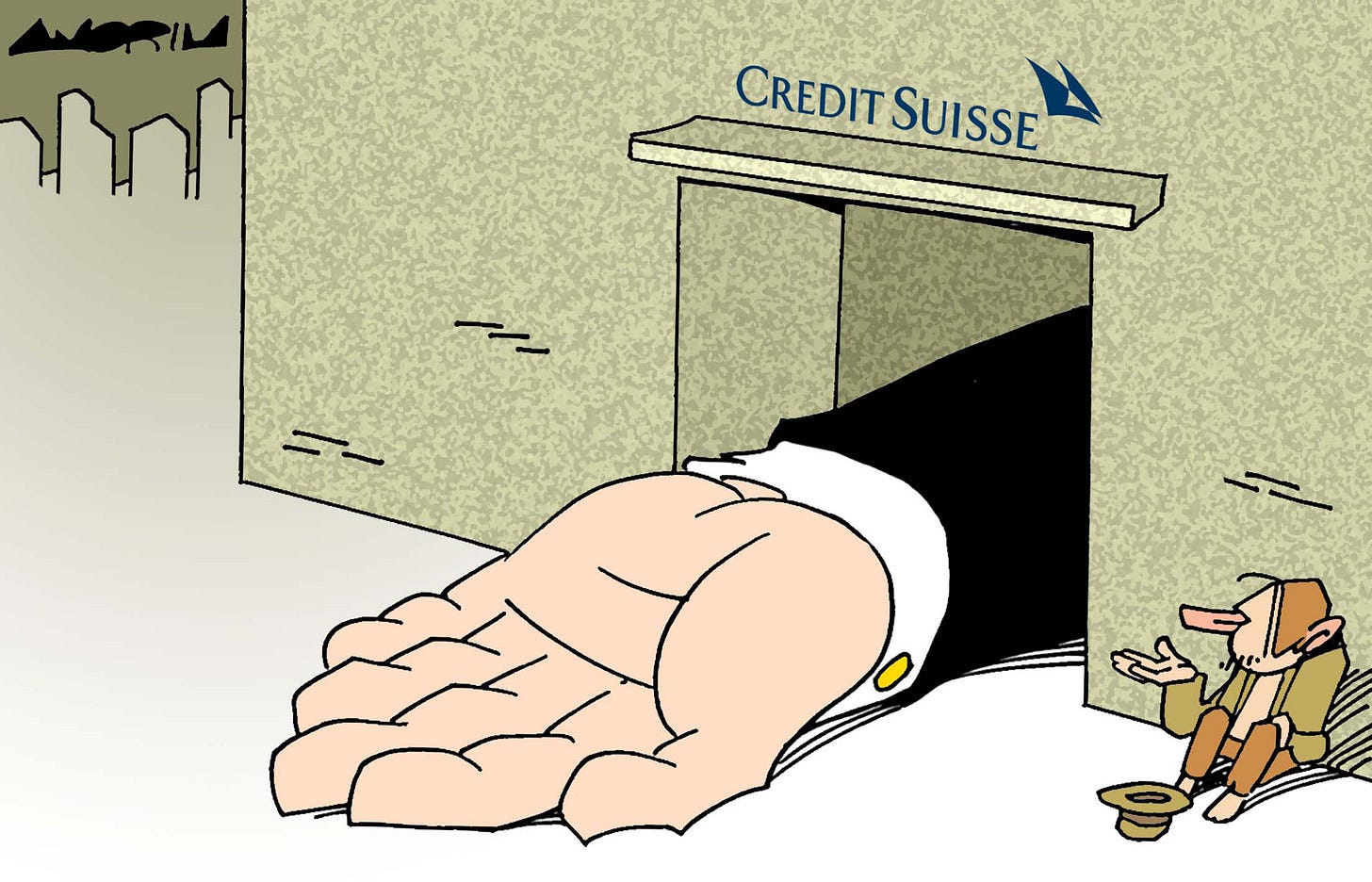The next financial crash will make inequality even worse
As the banking system faces fresh crisis we break down the inequality effect of financial meltdowns.
The financial system doomsday clock struck a second closer to midnight this week as European and US banks looked to be on the brink of collapse. Memories of the fallout from the 2008 Great Recession reverberated around the world. Yet again economists are rushing to explain the cause of the wave of bank failures having completely failed to predict them.
For the moment, it seems like the crisis has been averted, but this past week has only reminded everyone of the impacts the next financial implosion will have on poverty and inequality worldwide.
Financial meltdowns in numbers
Endemic inequality makes financial crises more likely. The build-up to the 2008 financial crisis was marked by ‘financialisation’, where the economy becomes increasingly dependent on the financial industry. Banks took high risks to maximise profits. Payments to shareholders and executives skyrocketed while wages stagnated. Inequality was soaring.
Sound familiar? Global dividends grew to a record $1.56 trillion in 2022 and our own analysis of wage data points to the largest wage cut in recent history. Since 2020, the richest 1% pocketed nearly twice as much of the new wealth as the rest of the world combined.
Source: Janus Henderson Global Dividend Index
In their seminal book, the IMF’s Jonathan Ostry and colleagues showed that inequality was associated with more frequent economic downturns (h/t EPI).
Inequality aftershocks. Financial crashes cause a lot of pain and increase inequality. The Bank for International Settlements found that income inequality grows twice as fast during recessions (h/t New Republic). The 2008 crisis was characterised by global austerity – widespread cuts to public services. Over 300k excess deaths were linked to austerity in the UK. There’s little reason to think governments will change their tune despite the overwhelming evidence of the economic self-harm of austerity.
IMF’s double standards. During the pandemic, IMF chiefs urged Europe not to endanger its economic recovery with “the suffocating force of austerity”. Yet, 13 out of the 15 loan programs during the second year of the pandemic to countries in the Global South required new austerity measures which epitomise the IMF’s double standards. Oxfam and DFI analysis of IMF data shows that three-quarters of all countries globally are planning further cuts to expenditures over the next five years, totalling $7.8 trillion dollars.
Socialism for the rich, capitalism for the poor? Bail-outs are back on the cards with banks turning to Central Banks for support. In 2008, banks were bailed out to the tune of half a trillion dollars in the USA. Trillions more were spent propping up economies during the pandemic, important interventions which made a major difference, but that also dramatically drove up extreme wealth. At the same time, urgent needs which would cost less, such as climate funding, and investment in health care and social protection, remain underfunded.
Cartoon by @amorimail licensed from Cartoon Movement
Secret handshake club? Only one banker went to prison in the US for his role in the financial crisis – funnily enough he worked for Credit Suisse. Bankers from the now-defunct Credit Suisse will keep their bonuses. All of Silicon Valley Bank’s lobbyists were former employees of the financial regulators.
What impact do you think the next financial crash will have on inequality? Comment below.
Something to watch and read
Watch Oxfam America’s event where ideas about what a post neo-liberal world could look like were discussed by Winnie Byanyima and Darrick Hamilton, hosted by The Washington Post's Ishaan Tharoor.
Read this op-ed from French MEP Aurore Lalucq and economist Gabriel Zucman calling for fair taxation of the ultra-rich.
Did you enjoy this week’s Equals Bulletin? Let us know in the comments below and please do share with friends and colleagues.





